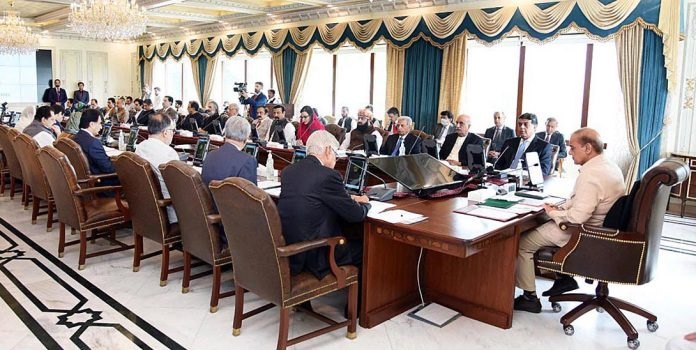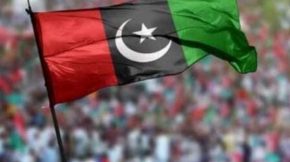PM links economy with political stability as cabinet okays budget proposals

Prime Minister Shehbaz Sharif on Friday said a country’s sound economic growth was linked with its political stability.
“Without political stability, even billions of budget could not make a difference in improving the economic situation,” he said at the cabinet meeting, which approved the budgetary proposals of the fiscal year 2023-24.
The prime minister said the common man was bearing the brunt of inflation, however, the government was taking steps to provide them relief in the budget.
The government, he said, accepted all the requirements of the International Monetary Fund (IMF) and hoped that a staff-level agreement would be reached in near future.
Since assumption of power 14 months ago, he added, it had to deal with the challenge of IMF, post-flood situation and global inflation, he added.
He expressed satisfaction that the current deficit in 10 months was reduced to $3.3 billion and hoped that the agriculture sector would boost.
The prime minister appointed Rohail Sheikh as his adviser and expressed the hope that he would fulfill his responsibilities with diligence.
The cabinet also accorded approval to the Finance Bill 2023.
Finance Minister Senator Ishaq Dar will present the budgetary proposals with an estimated outlay of Rs 14 trillion in the National Assembly in the evening.
This is the second budget in 14 months being presented by the coalition government under the banner of Pakistan Democratic Movement (PDM).
The government in its Economic Survey unveiled on Thursday highlighted its significant economic gains in terms of improved external and fiscal indicators.
Even with a significant increase in debt servicing, the fiscal deficit reduced to 4.6 percent of the gross domestic product (GDP) in July-April FY 2022-23 against 4.9 percent for the same period last year, while the primary balance reverted from deficit to surplus.
During the first 11 months of the outgoing fiscal year, the trade deficit was narrowed down by 40 percent and the current account deficit by 76 percent during July 2022-April 2023.










